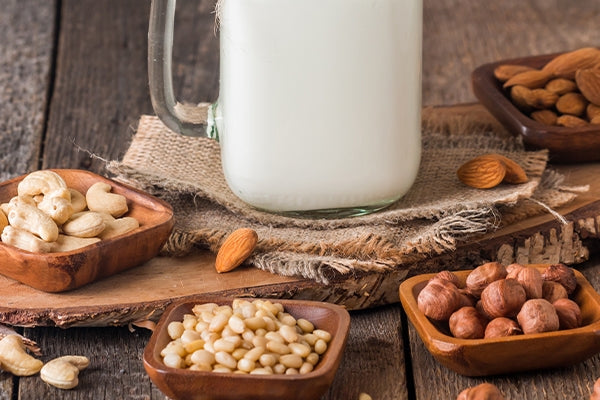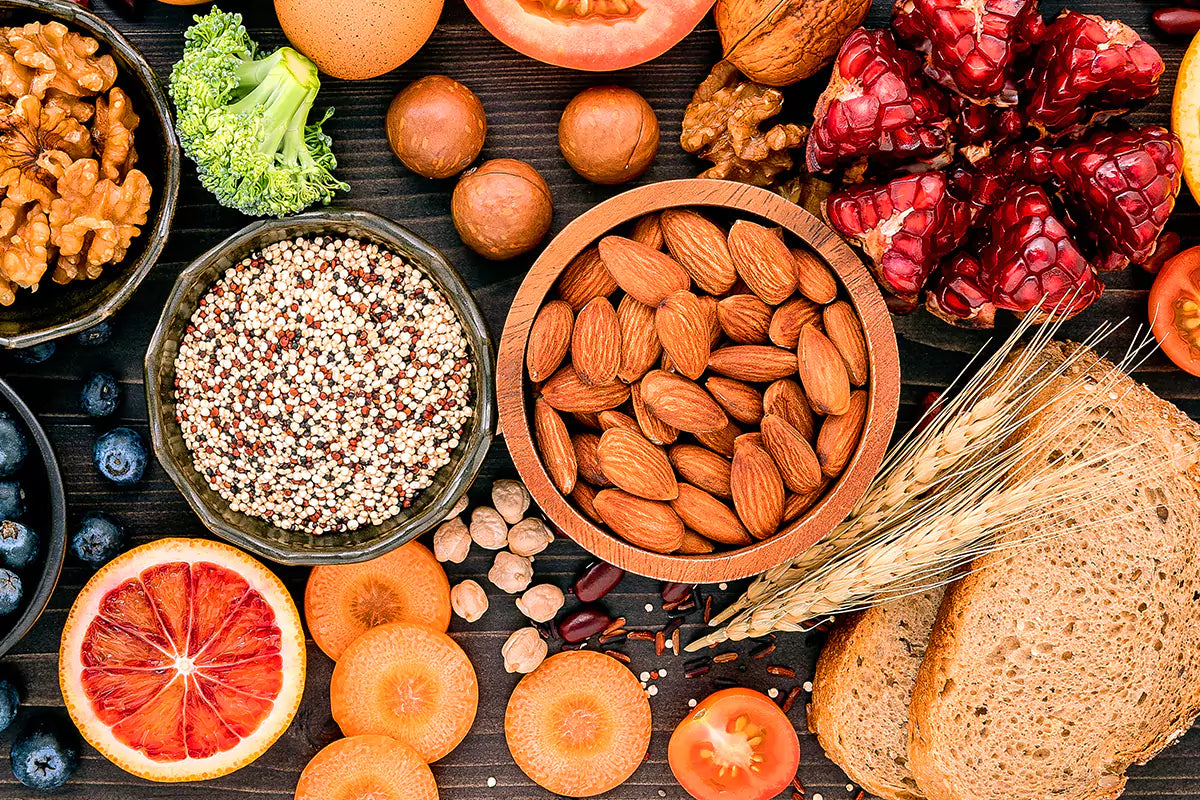
POSTED May 01, 2023
Flourish with Food: MIND Approach & Plant-Based Milks
With May designated as National Mediterranean Diet month, Flourish with Food initiated a focus on its components in 2021. A year later, this feature pivoted only slightly to the MIND diet, which prioritizes green leafy vegetables daily and berries over other fruits.
Both the MIND and Med approaches promote plant-based foods, including whole grains, nuts, seeds, and legumes. These foods lend themselves to milky beverages through water processing and straining out solids. Thickeners and emulsifiers are added, along with other ingredients to enhance the nutrition profile and flavor.
Behind the refrigerated milk doors, shoppers commonly find soy, almond, cashew, hemp, rice, flax, and/or oat milks. These milks vary in taste, thickness, and nutrition.
Plant-based milks are not recommended for babies in the first year of life. For guidance on serving nondairy milks to children: (1) https://www.parents.com/recipes/scoop-on-food/things-parents-should-know-about-non-dairy-milks, (2) https://www.parents.com/toddlers-preschoolers/feeding/breastfeeding/toddler-formula-vs-milk-whats-best/
Upsides of plant-based milks
- Provide lactose-free nondairy alternatives for cereal, smoothies, and coffee for lactose intolerant individuals.
- Fortified with calcium and vitamin D to levels equal to or greater than dairy milk.
- Some are B12 fortified, important for vegetarians and vegans.
- Except for coconut milk, have less than 1 g saturated fat.
- Are gluten free.
Downsides of plant-based milks
- Considered an ultra-processed food.
- Except for soymilk, much of the nutritional value is from fortification.
- Except for soymilk, have 0-1 g protein per 8 oz (dairy milk & soymilk have 8 g).
- Have 5-7 g added sugar (plain dairy milk none, soymilk 2 g); flavorings can add more.
- Casein, a dairy milk protein that enhances calcium absorption, is absent.
- Success in baking and cooking isn’t a sure thing. For guidance: https://www.allrecipes.com/article/non-dairy-milks-for-baking/
Fun Facts
- The FDA issued draft regulations in February that allow “milk” labeling on nondairy milks.
- Soymilk is nutritionally most like dairy milk, most notably because its protein is “complete” (contains all essential amino acids).
- Higher protein plant-based milks add pea protein to bump up the protein content. (Silk’s Protein, Bolthouse and Good Karma)
- There are only 4-6 almonds in 8 oz almond milk. Compared that to 28 in a 1 ounce serving.


